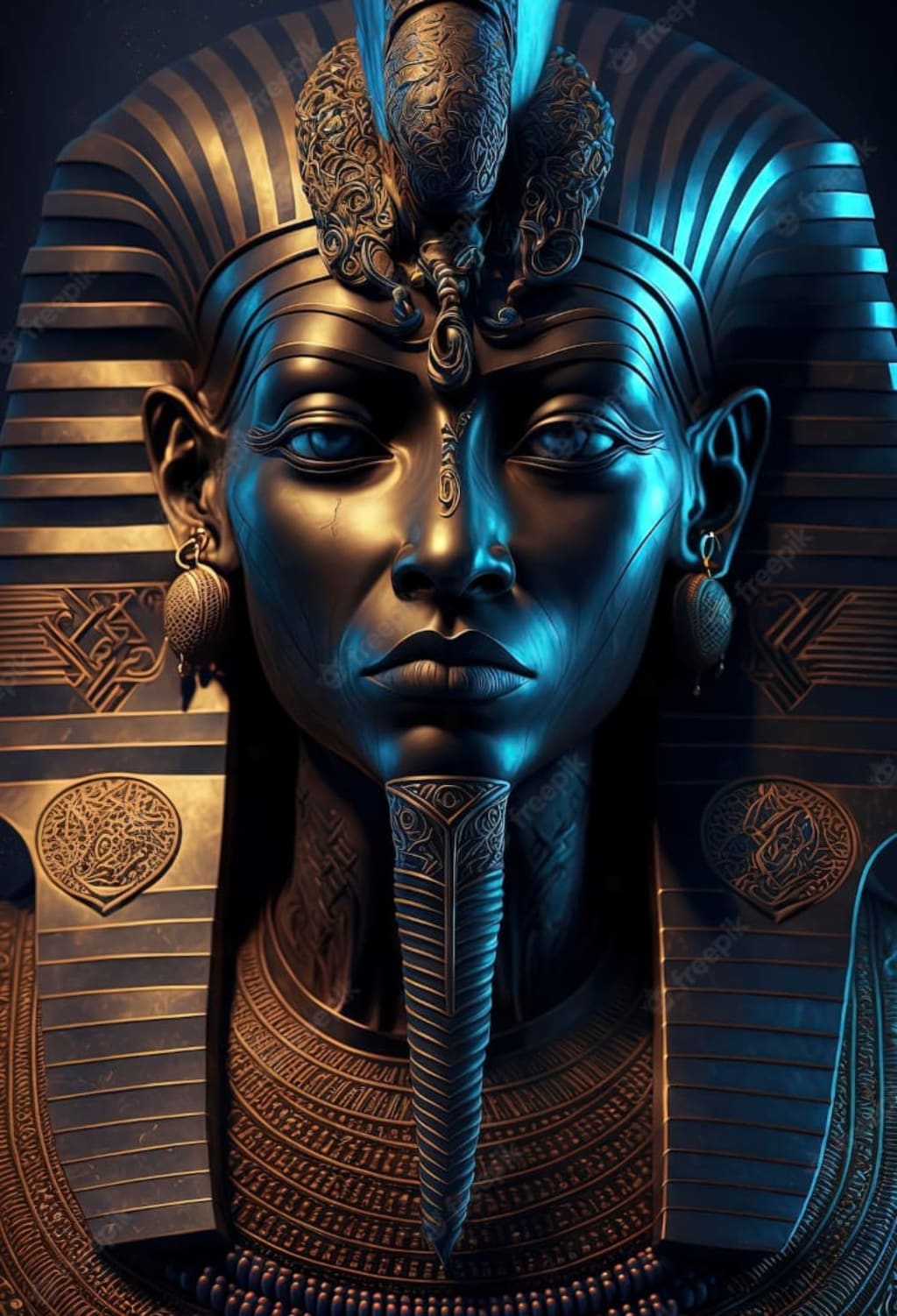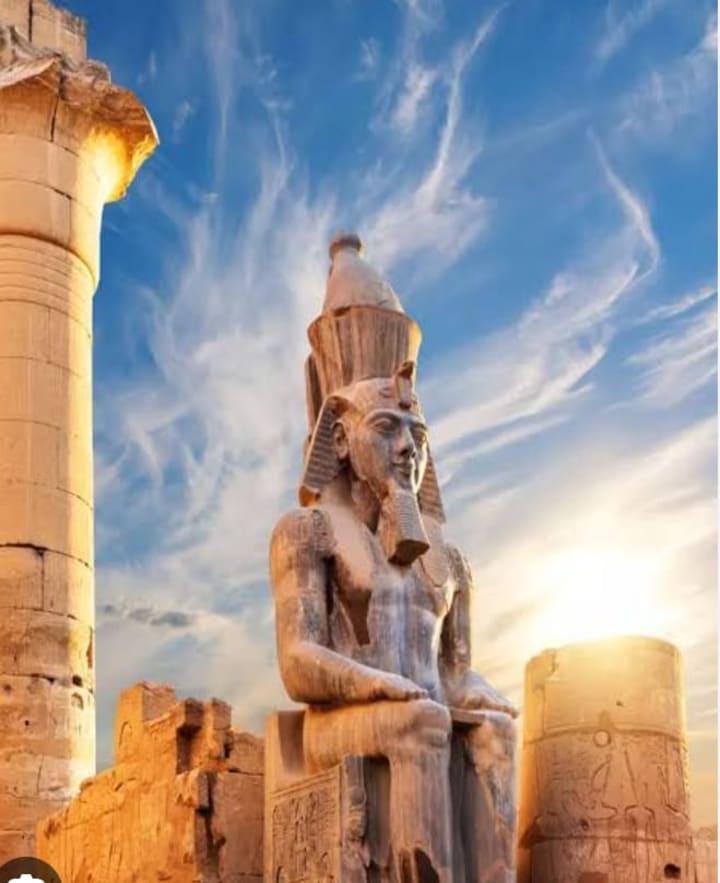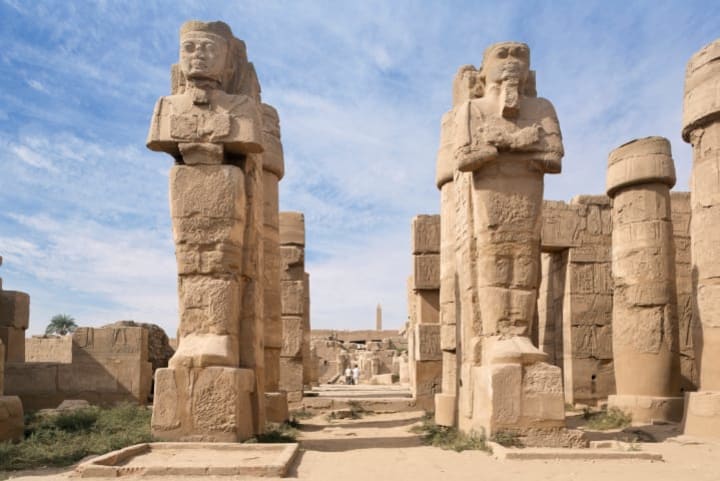
THE DOWNFALL OF EGYPT
Ancient Egypt was a civilization of ancient North Africa that flourished along the lower reaches of the Nile River. These following the prehistoric Egypt and formed around 3100 BC with a political unification of upper and lower Egypt under mayonnaise often identified as Normer. The history of these lands is a long one stretched on thousands of years.

People here experienced throughout time lots of events from conflicts to periods of peace, from famine and decay to prosperity and incredible wonders that the world had never seen. A series of kingdoms existed separated by periods of relative instability known as intermediate periods. The old kingdom of the early Bronze Age, the middle kingdom of the middle Bronze Age, and the new kingdom of the Late Bronze Age just by looking at these lands and knowing their incredible achievements which happened thousands of years ago we may sure consider that this ancient civilization was a successful one considering that the great pyramid of Khufu was built around 2582 2560 BC with a simple math calculation.

The success of ancient Egyptian civilizations came from many directions but one is from its ability to adapt to the conditions of the Nile River Valley for agriculture, which produced surplus crops that supported a dense population and social development and culture, as well as administration sponsored mineral exploitation, an independent writing system, organization of collective construction and agricultural projects, trade with surrounding regions, and a military intended to maintain order "poor, wealthy, middle class?", "distinctive of ancient Egyptian jurisprudence?" Whereas the Ancient Near Eastern world was founded around a number of empires which often fought with each other for hegemony over the region these empires had shared institutions such as a legal code and a priesthood which helped to keep order and enforce social norms when one empire grew too strong it would try to break down the institutions and domination of that empire by establishing its own institutions in conquered territory this led to the development of new empires who would try to topple the previous regime this process is known as internecine warfare.
Wealth military conflicts toward the end of the ancient Egyptian era were incredibly expensive funding massive military investments strains the government's capital and further weakened the state all these issues created more issues the dependency of the Nile River the lack of mental resources the corruption that led to the lack of economic health made Egypt less able to handle other stresses eventually leading to its fall even if the internal conflicts influence the health of the Egyptian state external military conflicts further weakens the Empire big blow happened in 7th century BC the nearby Assyrians invaded Egypt the Assyrians occupied Memphis sacks the temples of Thieves and reigned until 627 BC during this time period the Egyptian climate contributed to the fall of ancient Egypt in other ways the Nile River which was the primary resource of water for drinking and crop irrigation was a temperamental River known for flooding and periods of low water levels this caused widespread hunger and thousands of Egyptians died from dehydration and starvation while experts believe the low water in the Nile was the primary influence for the fall of ancient Egypt during the later period in the Empire's existence a two to three decades period was marked by erratic flooding of the Nile destroying crops and starving the people depended on them the Assyrians left control of Egypt to a series of vassals who became known as the site kings of the 26th dynasty, even if the Assyrians were pushed back the economy and culture were revitalized. But in 525 BC a new danger appeared the mighty Persian Empire began the conquest of Egypt capturing the Pharaoh. Some took the 3rd of the Battle of Pella se'eem the Persian King assumes the formal title of Pharaoh but ruled Egypt from Iran leaving Egypt under the control of a Satrapi, that's the end of this extended period of political and economic unrest and devis Sadek climate issues. Egypt has lost most of its land and became a mere province within the Persian Empire, revolts happened, thousands of its people had died and the public was increasingly dissatisfied with both their political and religious leaders Alexander the Great conquered the Persian Empire and too was welcomed by the Egyptians as a savior the administration established by Alexander's successors the Makedonija and Ptolemaic Kingdom was based on an Egyptian model and based in the new capital of Alexandria the city showcased the power and prestige of Hellenistic rule and became a seat of learning and culture continued Egyptian revolts ambitious politicians and powerful opponents from the Near East made this situation unstable leading Rome to send forces to secure the country as a province of its Empire Christianity began to spread through Egypt and with its the Greek alphabet both transforming key features of the ancient culture that we know and recognize today adopting a new religion where the old religion has been a major cultural force in the Egyptian Empire led to the end of practices such as mummification that's the ancient Egyptians were well known for similarly adoption of the Greek alphabets led to the disuse of hieroglyphics another key feature of Egypt that we have with us today these shift signals the true fall of ancient Egypt although the forces that drove the decline has been operating for a considerable time period in the 4th century as the Roman Empire divided each if found itself in the Eastern Empire in the waning years of the Empire Egypt fell to the sustaining Persian army 618 to 628 AD and was recaptured by the Roman Emperor Heraclius 629 to 639 AD and then was finally captured by the Muslim rashidun Army in 639 - 641 AD ending Roman rule in its last centuries from its internal problems until the Arab conquest the Egyptian civilization was more and more influenced by the outside world having their own problems the kingdom of the Nile couldn't resist against foreign influences Persians Greeks and Romans shaped their culture, traditions language and religion resulting in the Fall of Egypt.
About the Creator
Enjoyed the story? Support the Creator.
Subscribe for free to receive all their stories in your feed. You could also pledge your support or give them a one-off tip, letting them know you appreciate their work.






Comments (1)
Please provide us with more ancient histories.